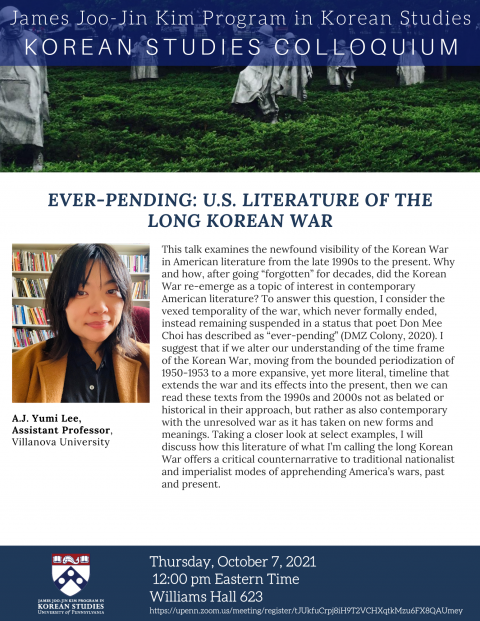
Korean Studies Colloquium
Williams Hall 623
Optional Zoom registration HERE
This talk examines the newfound visibility of the Korean War in American literature from the late 1990s to the present. Why and how, after going “forgotten” for decades, did the Korean War re-emerge as a topic of interest in contemporary American literature? To answer this question, I consider the vexed temporality of the war, which never formally ended, instead remaining suspended in a status that poet Don Mee Choi has described as “ever-pending” (DMZ Colony, 2020). I suggest that if we alter our understanding of the time frame of the Korean War, moving from the bounded periodization of 1950-1953 to a more expansive, yet more literal, timeline that extends the war and its effects into the present, then we can read these texts from the 1990s and 2000s not as belated or historical in their approach, but rather as also contemporary with the unresolved war as it has taken on new forms and meanings. Taking a closer look at select examples, I will discuss how this literature of what I’m calling the long Korean War offers a critical counternarrative to traditional nationalist and imperialist modes of apprehending America’s wars, past and present.
A.J. Yumi Lee is Assistant Professor of English at Villanova University, where she teaches and researches race, empire, and war in contemporary American literature and culture. She received her Ph.D in English at the University of Pennsylvania, and she has also held postdoctoral fellowships in Asian American Studies at Dartmouth College and the University of Illinois at Urbana-Champaign. Her research has been published in venues including Verge: Studies in Global Asias and Radical History Review, and she is currently completing her first book manuscript.
 James Joo-Jin Kim Center for Korean Studies
James Joo-Jin Kim Center for Korean Studies